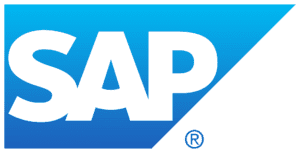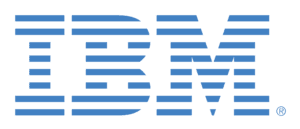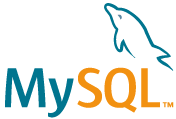

If you’re looking for a system to store your company’s data on-premises or in the cloud, chances are you’ll be considering at least one of these top enterprise database software solutions.
The list is comprised of database veterans such as Oracle, Microsoft, SAP, and IBM, as well as more recent additions to this competitive marketplace. The newer players take advantage of open source, cloud computing, and new computing languages to gain an edge. But the old guard has caught up, and largely offers their own solutions as deployable in the cloud, hybrid, or on-premises.
There’s no single correct answer for every data problem. Nor is there a perfect database system; each has its own set of features and shortcomings. Here’s a primer on the top enterprise database systems on the market, so you can determine the solution that will work best for you.
Read more on Datamation: Database Trends

SAP is Recognized as a leader in the Forrester Wave: Multi-Model Data Platforms for Q3 2021. It offers multi-model processing within SAP HANA, which provides an immense amount of in-memory processing for high performance.
SAP HANA is a good candidate for large enterprises, but may be too much for smaller businesses.

Knack offers simple tools as part of its online database to structure data with data types that make sense, like names and emails. It helps to connect data by interlinking related records and extends this with special options like formulas and equations.
Knack is a good candidate for small and midsize businesses that lack internal database expertise.

TeamDesk is another online database that aims to remove the complexity of running and maintaining one on-prem. Its templates make it easy to create a custom database despite a lack of technical knowledge.
TeamDesk looks like a good choice for small businesses, but may also work for midsize firms that don’t want to be concerned with database management.

The latest version of Oracle Database 21c includes an Always Free tier of Oracle Autonomous Database. Oracle Database 21c contains immutable blockchain tables, In-Database JavaScript, native JSON binary data type, AutoML for in-database machine learning, and persistent memory store — as well as enhancements for in-memory, graph processing performance, sharding, multitenant, and security.
As the most popular database platform in the world, Oracle Database 21c is a common choice for large and midsize enterprises. However, it’s overkill for most small businesses.

SQL Server is a relational database management system developed by Microsoft that is widely used in Microsoft and Azure environments. There are various editions of SQL Server available including Enterprise, Standard, Web, Developer, and Express.
SQL Server is ideal for those invested in Microsoft, .Net, and Azure.

IBM Db2 on Cloud is a fully managed SQL cloud database that offers a dedicated operations team, and point-in-time recovery, as well as high-availability disaster recovery technology with multizone region support and independent scaling to protect enterprise applications.
A long-term competitor with SAP and Oracle in the large enterprise space, IBM is another solution that may overwhelm smaller businesses.

MySQL Database Service with HeatWave is a cloud database service that provides MySQL customers with integrated transaction processing and analytics, avoiding the need for a separate analytics database and manual ETL processes to move data from one database to the other. HeatWave is a massively parallel, high performance, in-memory query accelerator.
MySQL is a strong candidate for those that want the benefits of Oracle or SQL databases without the hassle of managing them.

MongoDB is a document database that is scalable and includes querying and indexing. MongoDB’s document data model supports JSON and its query language is simple for developers to learn and use. Functionality includes automatic failover, horizontal scaling, and the ability to assign data to a location.
MongoDB is a favorite of those in the open-source community, but may not be basic enough for organizations lacking skilled internal resources.
Databases are structured systems that gather data in rows, columns, and fields — think customer lists, product catalogs, and the like. Some are huge. The data has to be entered in a particular way according to the way in which the database software is organized.
Database management systems (DBMS) are software packages that help organizations to define, manipulate, retrieve, and manage the data contained within a database. DBMSs contain rules about how data is to be manipulated, how it is to be formatted, what the various field names are, how records and files are structured, and so on.
Multi-model databases are one of the trends in database software and management right now. Multi-model databases offer a single, integrated data platform that can store, access, and process different types of data to carry out multiple tasks. With a multi-model database, you can unify various data types and models into a single solution, without having individual technologies for each specific purpose.
This is more beneficial than having individual technologies for each specific purpose. The resulting patchwork solutions can lead to silos that hamper business agility and innovation. A unified multi-model data platform can help overcome these challenges.
Read more: What Is a Database Server & What Is It Used For?
Organizational databases are sometimes considered the heart and soul of the enterprise. Their benefits include:
Property of TechnologyAdvice. © 2026 TechnologyAdvice. All Rights Reserved
Advertiser Disclosure: Some of the products that appear on this site are from companies from which TechnologyAdvice receives compensation. This compensation may impact how and where products appear on this site including, for example, the order in which they appear. TechnologyAdvice does not include all companies or all types of products available in the marketplace.